“African American women experience distinct differences
in physical, psychological, social,
and quality of life measures during menopause”.1
Umbrella
What may the Black Women’s Menopause Umbrella include?
Depending on the Source (DotS) this Umbrella may include:
- Change of Life
- Early Menopause
- Going Through the Menopause
- Induced Menopause
- Menopausal/Menopause Transition
- Menopause
- Natural Menopause
- Perimenopause
- Perimenopause, Menopause and Postmenopause
- Postmenopause
- Premature Menopause
- Second Half of Your Life
- Surgical Menopause
- The Change
- The Change of Life
- The Menopause Years
- The Menopause-Related Years
- The Three Stages of Menopause
- Turning St Catherine’s Corner
Definition
DotS the definition of menopause may vary. In Menopause: Overview the World Health Organization’s definition is:
Menopause Experience
What is known about black women’s experiences in menopause?
In A Review of African American Women’s Experiences In Menopause: Importance and Objective, published November 2022, the authors explain:
Different Differences
Do black women have unique experiences in menopause?
In A Review of African American Women’s Experiences In Menopause: Discussion and Conclusion the authors also note:
 “African American women experience distinct differences in physical, psychological, social, and quality of life measures during menopause. Increasing awareness about the unique menopause experiences of African American women is critically important to improve the health of this underserved population”.4
“African American women experience distinct differences in physical, psychological, social, and quality of life measures during menopause. Increasing awareness about the unique menopause experiences of African American women is critically important to improve the health of this underserved population”.4Menopause Age
Is there an association between Black women and menopause age?
In Menopause Is Different for Women of Color: What A Landmark Study Reveals, published 14 September 2025, the author includes:
Different Differences
What are some differences during the menopausal transition of Black women compared to White women?
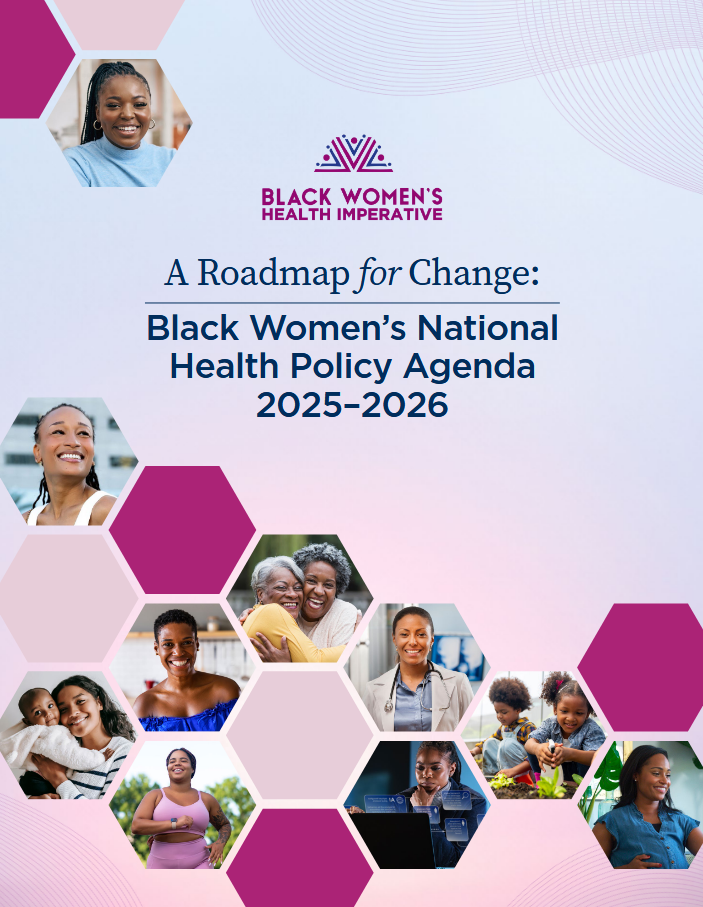 On page seven in A Roadmap for Change: Black Women’s National Health Policy Agenda 2025–2026 – Research At BWHI: Black Women’s Perimenopause and Menopause Survey the (United States) Black Women’s Health Imperative (BWHI) elaborate on:
On page seven in A Roadmap for Change: Black Women’s National Health Policy Agenda 2025–2026 – Research At BWHI: Black Women’s Perimenopause and Menopause Survey the (United States) Black Women’s Health Imperative (BWHI) elaborate on:
SWAN Study
What was included in the Conclusion in Disparities In Reproductive Aging and Midlife Health Between Black and White Women: The Study of Women’s Health Across the Nation (SWAN), published 08 February 2022?
Included in the Conclusion Disparities In Reproductive Aging and Midlife Health Between Black and White Women: The Study of Women’s Health Across the Nation (SWAN): Conclusion the authors elaborate on:
Health Care Provider
What if I would like help with my menopause?
In Menopause Is Different for Women of Color: What Does This Mean for Women of Color?, recently updated 14 September 2025, the author explains:
In What Is Perimenopause and Menopause? When To See Your Doctor the JH explain:
- Irregular periods
- Heavy bleeding
- Bleeding after menopause
- Increased premenstrual syndrome (PMS) symptoms
- Menopausal symptoms, such as hot flushes, that interfere with your daily life”.9
The (United States) Mayo Clinic encourage us to seek help:
Health Topics A-Z
Where may I find Health Topics A-Z related to Black Women’s Menopause?
In Health Topics A-Z you may find:
Links
Where may I find Links related to Black Women’s Menopause?
Your Country may have Links similar to:
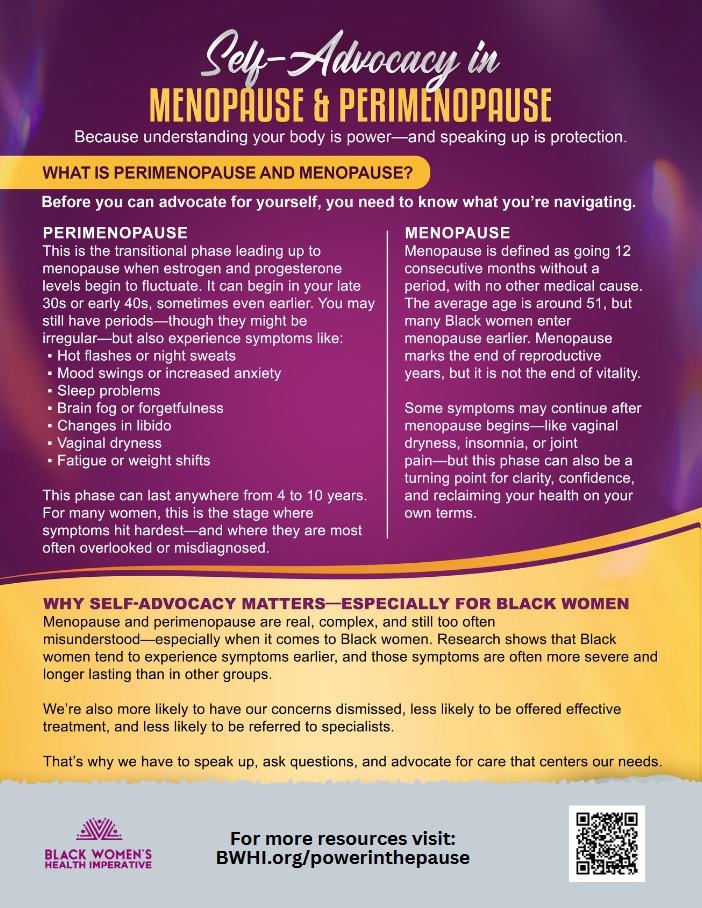
Links
This Links List to third party websites is neither comprehensive nor exhaustive. Inclusion on this Links List does not imply endorsement or recommendation. Non-inclusion on this Links List does not imply non-endorsement or non-recommendation. Third party websites are not under the control of Meno Martha International Menopause Directory. Third party websites may contain explicit medical images and/or sexual references. Please read Meno Martha International Menopause Directory’s Links Policy before proceeding to a Link. Please contact Webmaster if you experience a problem with a Link.New or Updated
- A Roadmap for Change: Black Women’s National Health Policy Agenda 2025–2026

- Beyond Hot Flashes: Why Your Menopause Symptoms Are A Heart Health Issue [06 February 2026]
- Black Women and Menopause: Changing the Conversation Together [November 2025]
- Menopause Is Different for Women of Color [14 September 2025]
- The Menopause Gap: Why Some Women Suffer More and Get Less Care [08 January 2026]
- Why Heart Disease In Women Is Still Being Missed [23 February 2026]
- A Review of African American Women’s Experiences In Menopause
- A Roadmap for Change: Black Women’s National Health Policy Agenda 2025–2026

- ACOG Explains: Managing Menopause Symptoms [American College of Obstetricians and Gynecologists]
- Askearlymenopause.org [Ask EM] [+ Video: What Is Early Menopause?]
- Beyond Hot Flashes: Why Your Menopause Symptoms Are A Heart Health Issue
- Black Menopausal Women Almost 5 Times Less Likely To Be on HRT Than White Women
- Black Women and Menopause: Changing the Conversation Together
- Black Women’s Health Imperative
- Black Women’s Health Study
- Black Women’s Menopause Survey [Black Women’s Health Imperative, United States]
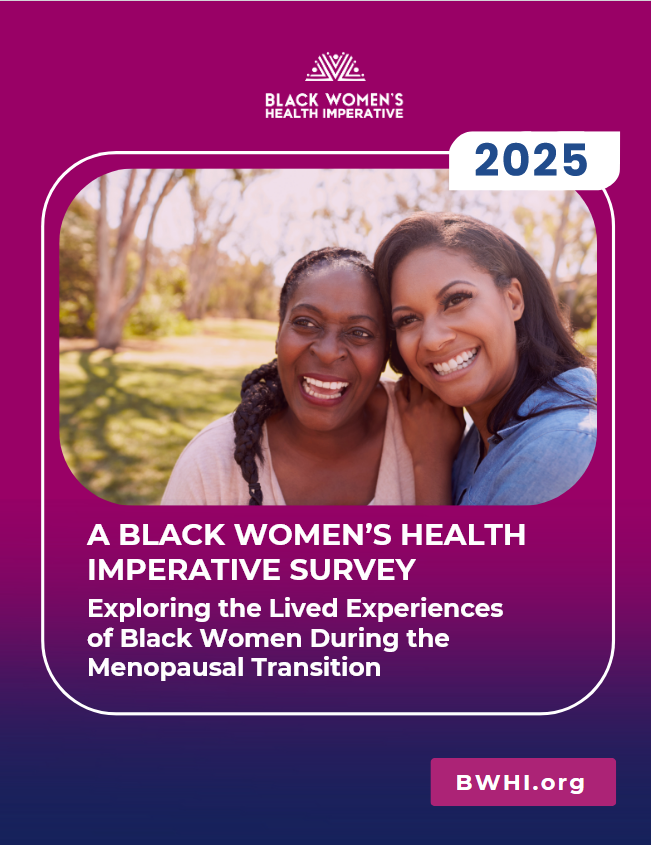
- Bleeding After Menopause? Here’s What You Need To Know
- Complementary & Alternative Therapies: Non-Hormonal Treatments for Menopause Symptoms
- Complementary Medicines and Therapies for Hot Flushes
- Complementary Medicines and Therapies: Options for Menopausal Symptoms
- Consumer Video and Podcast Series: 2023 Consumer Videos and Podcasts – Racial and Ethnic Differences in the Menopause Experience
- Consumer Video and Podcast Series: 2024 Consumer Videos and Podcasts – Preparing for Your Menopause Health Care Visit
- Consumer Video and Podcast Series: 2025 Consumer Videos and Podcasts – Abnormal Uterine Bleeding—When To See A Clinician
- Correction: Disparities In Reproductive Aging and Midlife Health Between Black and White Women: The Study of Women’s Health Across the Nation (SWAN)
- Could It Be Perimenopause? How Hormones Influence the Brain
- Deciding About Hormone Therapy Use
- Does Everyday Discrimination Account for the Increased Risk of Vasomotor Symptoms In Black Women?: The Study of Women’s Health Across the Nation (SWAN)
- Experts Answer Your Menopause Questions In New Video
- FDA Direct: Removing Black Box Warnings for HRT (Part 1/2)
- Fibroids.bwhi.org
- Find A Menopause Practitioner [United States and Other]
- Find A Practitioner [Australasian Menopause Society i.e. Australia and New Zealand]
- Find Your Nearest BMS Menopause Specialist [British Menopause Society]
- First Symptoms of Menopause
- Forward [Foundation of Women’s Health Research and Development, United Kingdom]
- Genitourinary Syndrome of Menopause
- HRT Questions Answered
- Handling Hot Flushes and Night Sweats| Dr Louise Newson
- Health Care Concerns In Women At Midlife: Differences By Race, Ethnicity, and Neighborhood Socioeconomic Status
- Here’s What You Need To Know About Menopause [Video]
- Hormone Therapy: Is It Right for You?
- How Does Race Affect Menopause Care?
- How To Manage Menopausal Symptoms
- How To Talk To Your Doctor About Menopause
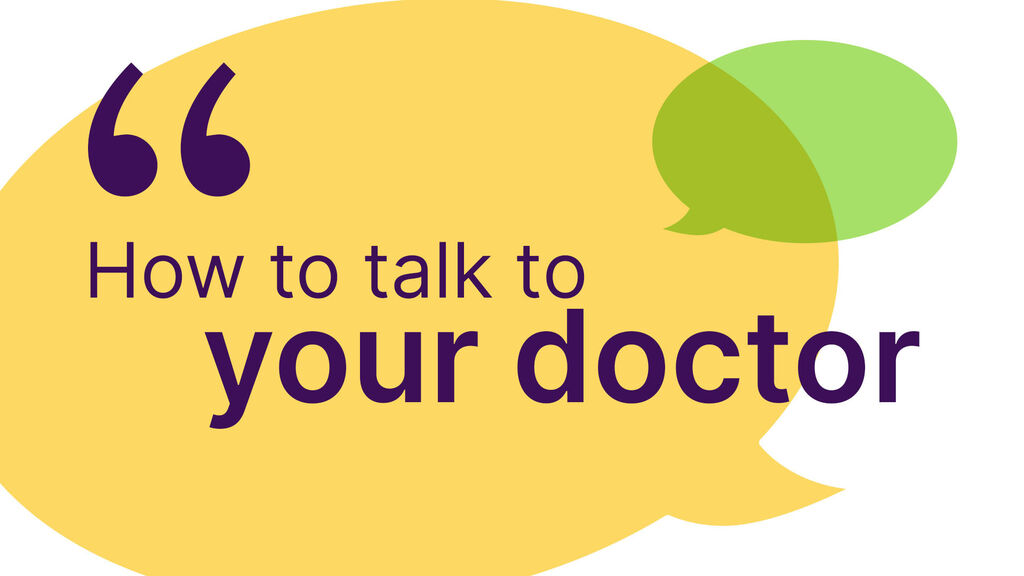
- How Vaginal Hormones Can Transform the Health of Women
- IMS Interview Series for Women: Lifestyle Medicine With Prof. Rossella Nappi | For Women
- Later Years (Around 50 Years and Over): Menopause and Post Menopause Health – Menopause [+ Video: Menopause] [Other Languages and Formats]
- Looking After Yourself Around the Time of Menopause
- Making Menopause Work
- Managing Menopause Symptoms [+ Video Courtesy: Mayo Clinic News Network]
- Menopause
- Menopause
- Menopause
- Menopause
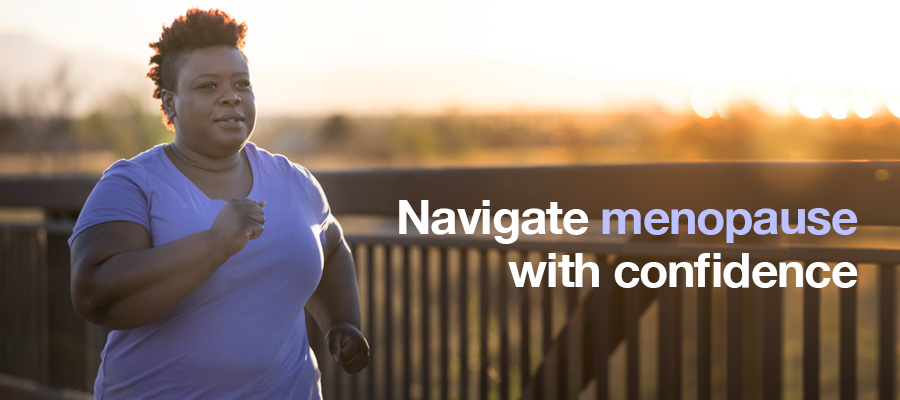
- Menopause
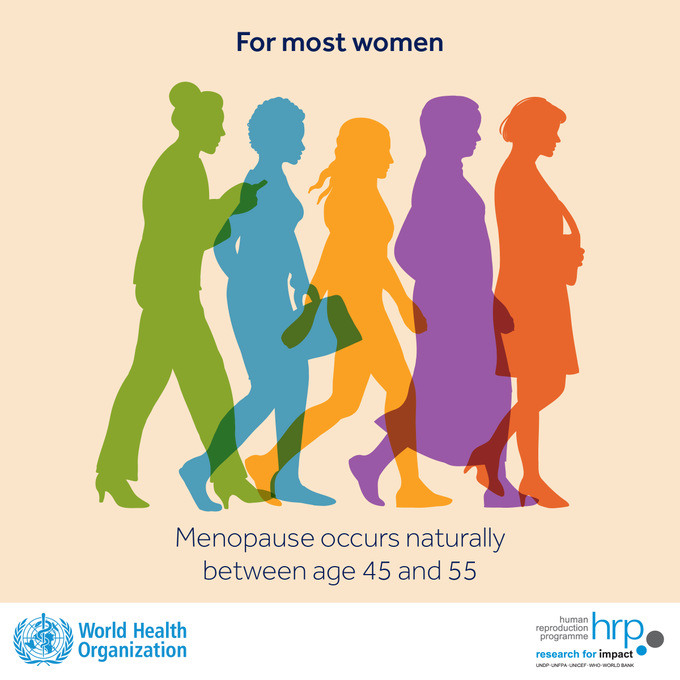
- Menopause Hormone Therapy and Complementary Alternative Medicine, Quality of Life, and Racial/Ethnic Differences: The Study of Women’s Health Across the Nation (SWAN)
- Menopause Map: Downloadable Resources – My Personal Path Print Tools: Questions for Your Health Care Provider

- Menopause Map: Downloadable Resources – My Personal Path Print Tools: Symptom Tracker
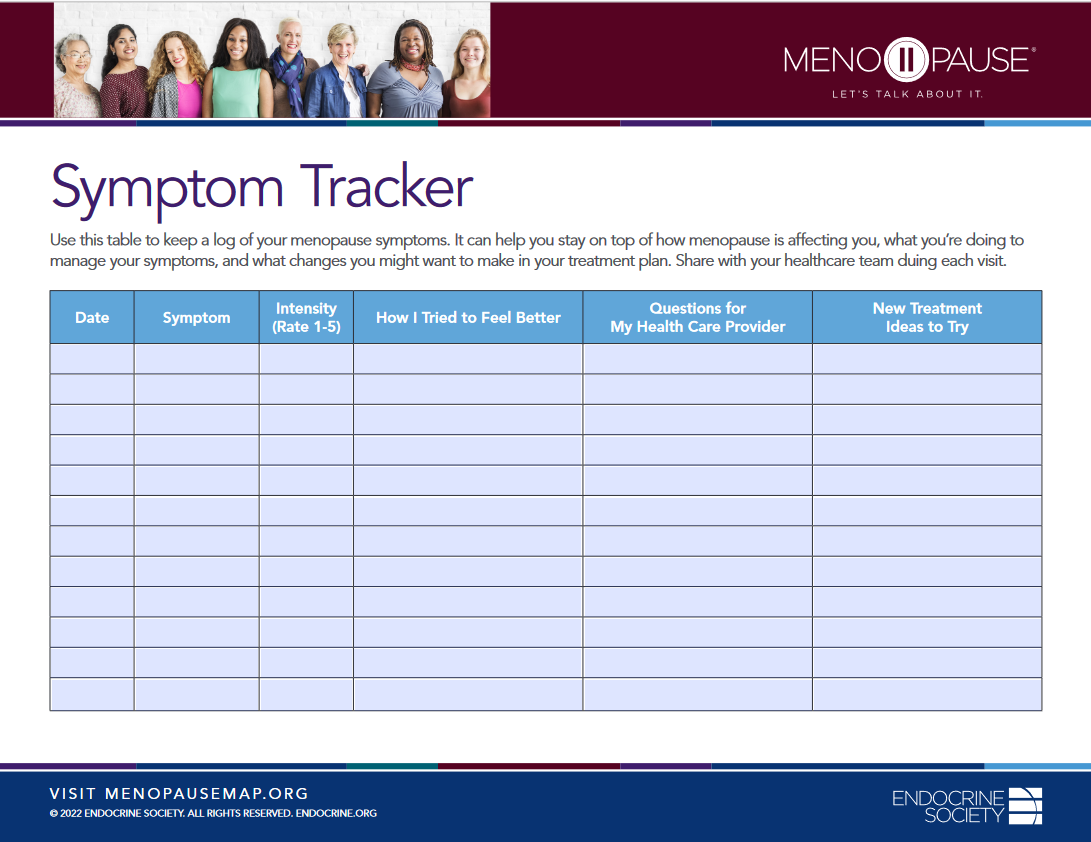
- Menopause and Mental Health
- Menopause: Identification and Management [NICE Guideline]
- Menopause: Identification and Management [NICE Guideline]

- Menopause – Multiply Languages
- Menopause – The Change – Booklet
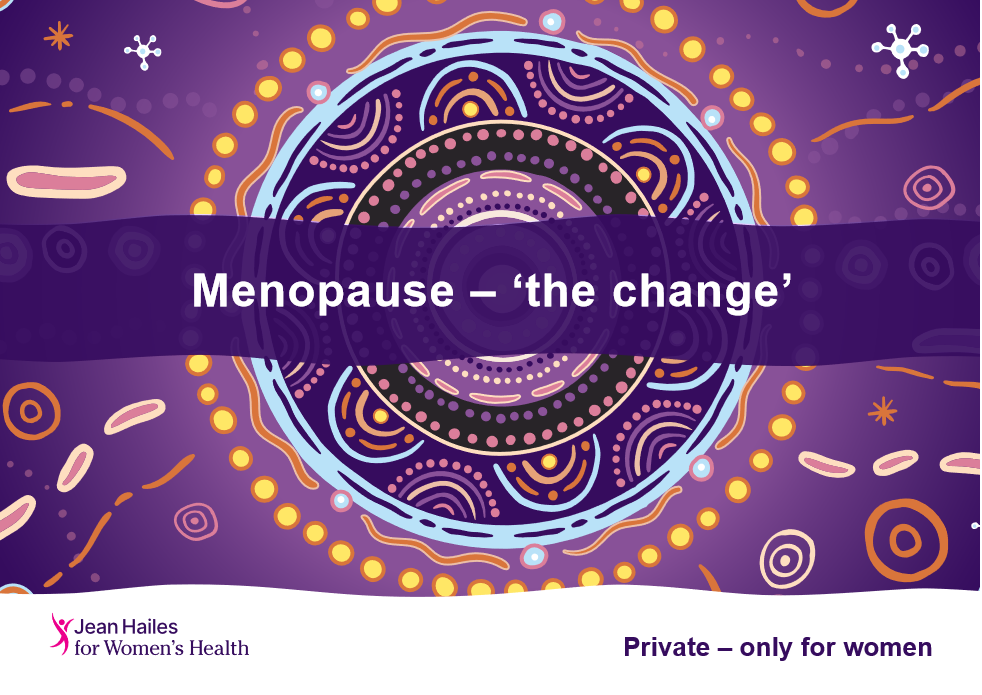
- Menopause: Things You Can Do
- Menstrual Calendar
- Midlife Weight Gain
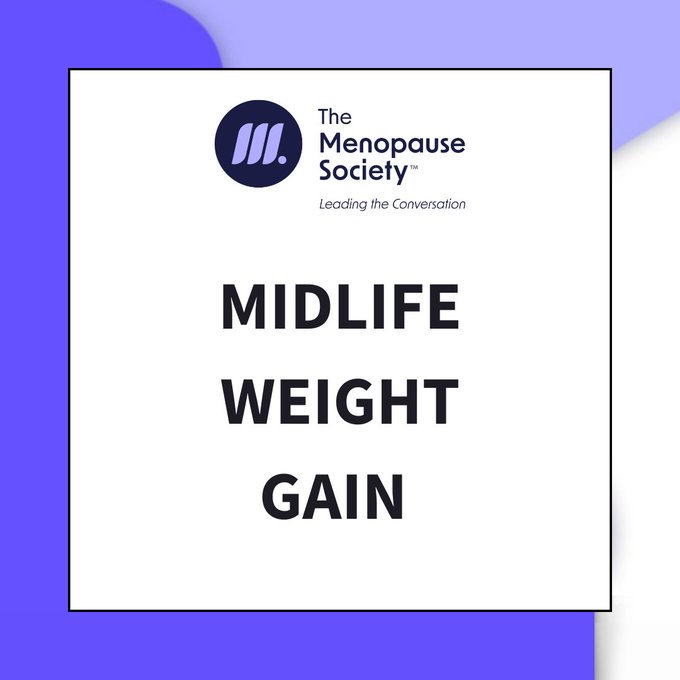
- Monitoring Menopause Symptoms
- My Periods Have Changed. Is Menopause Around the Corner?
- Mymenoplan.org [My Menoplan, United States]
- Myth vs. Fact Menopause and Perimenopause
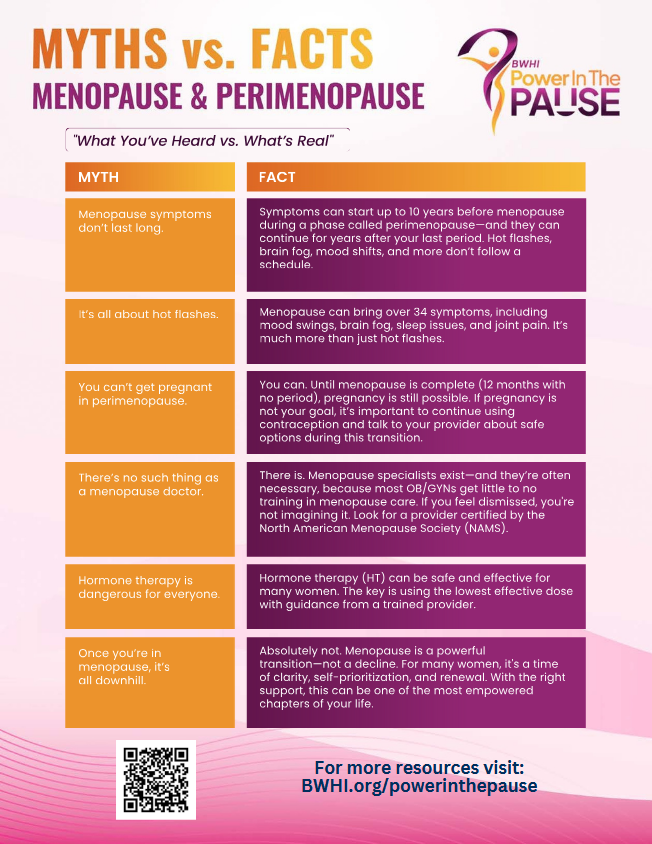
- National Women’s Health Week [11-17 May 2025]: Navigating the Road to Menopause
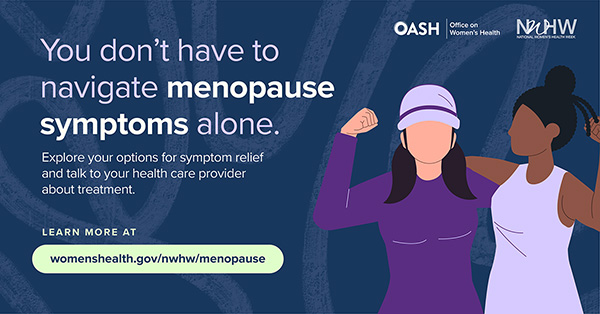
- Navigating Menopause: Honest Answers To All Your Questions [+ Video: What To Expect in Menopause]
- Navigating Menopause Care Resource Guide
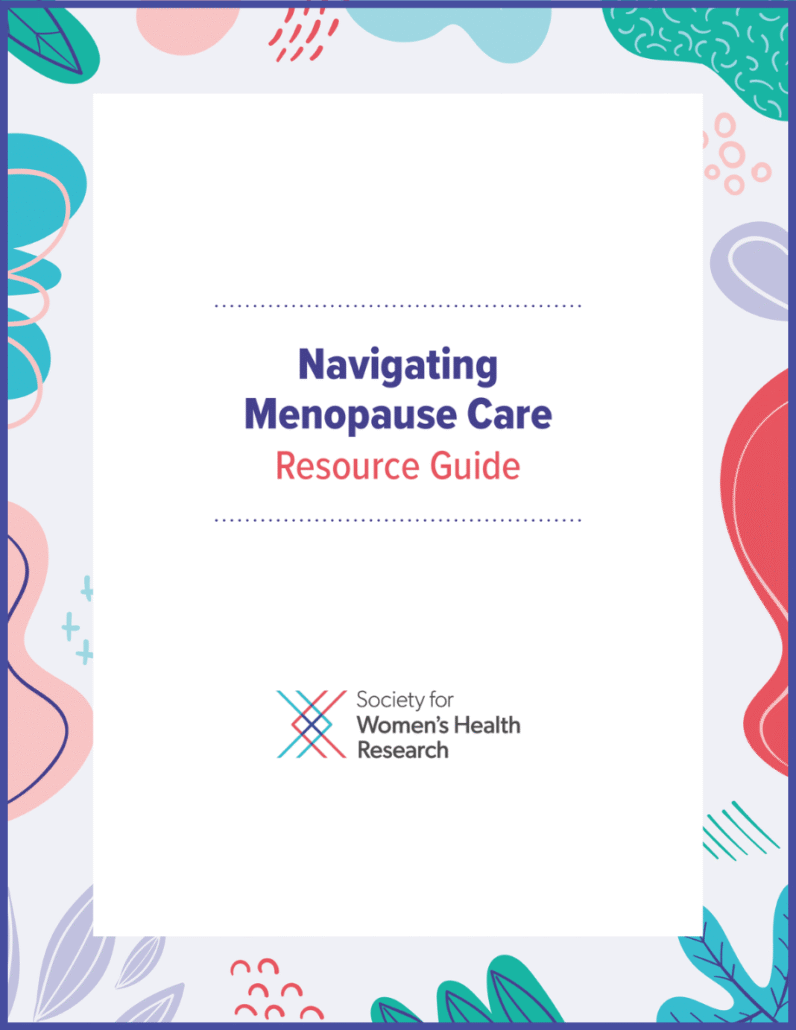
- New Menopause Information for First Nations Communities [Australia]

- Online Events [International Menopause Society]: IMS Partnership Symposia Series – What’s Hot? Options for Treatment of Hot Flushes 2025
- Online Events [International Menopause Society]: Past Webinars 2025 – Lifestyle Medicine
- Online Events [International Menopause Society]: Past Webinars 2025 – The Burn, the Itch, the Pain, the Urge: GSM In Women
- Perimenopause
- Perimenopause
- Perimenopause and Menopause Checklist: Translated Checklists
- Perimenopause and Menopause Symptom Checklist

- Perimenopause and Menopause Toolkit
- Postmenopause
- Power In the Pause [Black Women’s Health Imperative, United States]
- Q&A: What To Know When Treating Black, Hispanic and LGBTQ+ Patients During Menopause
- Racial Disparities In Menopause
- Resources: Fact Sheets [Multiply Languages]

- Resources: Infographics

- Self-Advocacy In Perimenopause and Menopause

- Shedding Light on the Menopause Experience and Demystifying Treatment
- Supplements: What Works, What Doesn’t and the Truth About Menowashing
- Surprising Menopause Symptoms | Dr Louise Newson Live
- Systematic Exclusion At Study Commencement Masks Earlier Menopause for Black Women In the Study of Women’s Health Across the Nation (SWAN)
- The Menopause Resource Hub [Black Women’s Health Imperative, United States]
- Tips To Help Manage Menopause Symptoms
- Top Menopause Questions Answered: Hormones, Bones, Sex & Sleep
- Treatments for Menopause
- Videos & Podcasts: Videos – Menopause and Hormone Therapy: Current Perspectives and Controversies
- What Is Perimenopause and Menopause?
- What Is the Difference Between Perimenopause, Menopause and Postmenopause?
- What Is the Menopause?
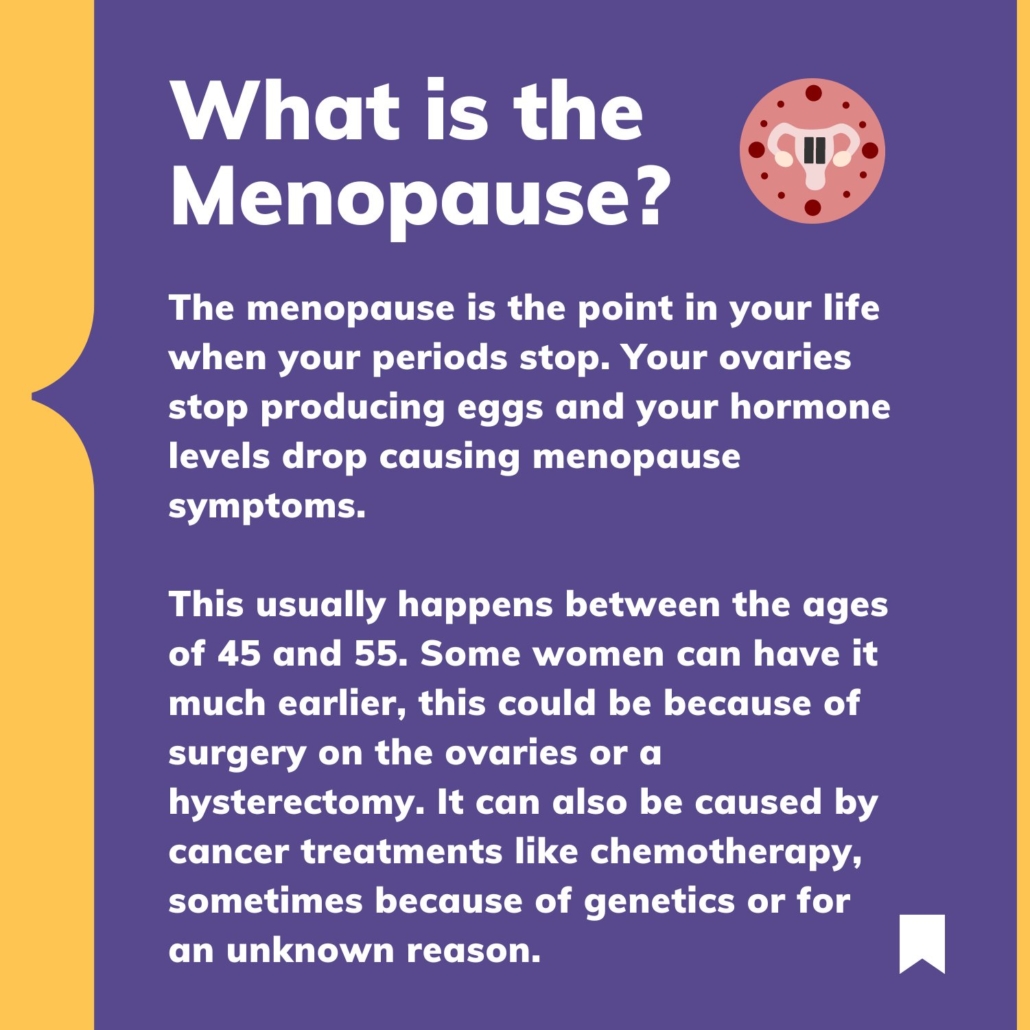
- When Does Perimenopause Start and How Do You Define the Beginning
- Where Menopause Hits Hardest
- Why Heart Disease In Women Is Still Being Missed
- Why Is Bleeding So Heavy?
- World Menopause Day 2024: Leaflet for Women – Menopause and Menopause Hormone Therapy [Multiply Languages]
- World Menopause Day 2025 [18 October]
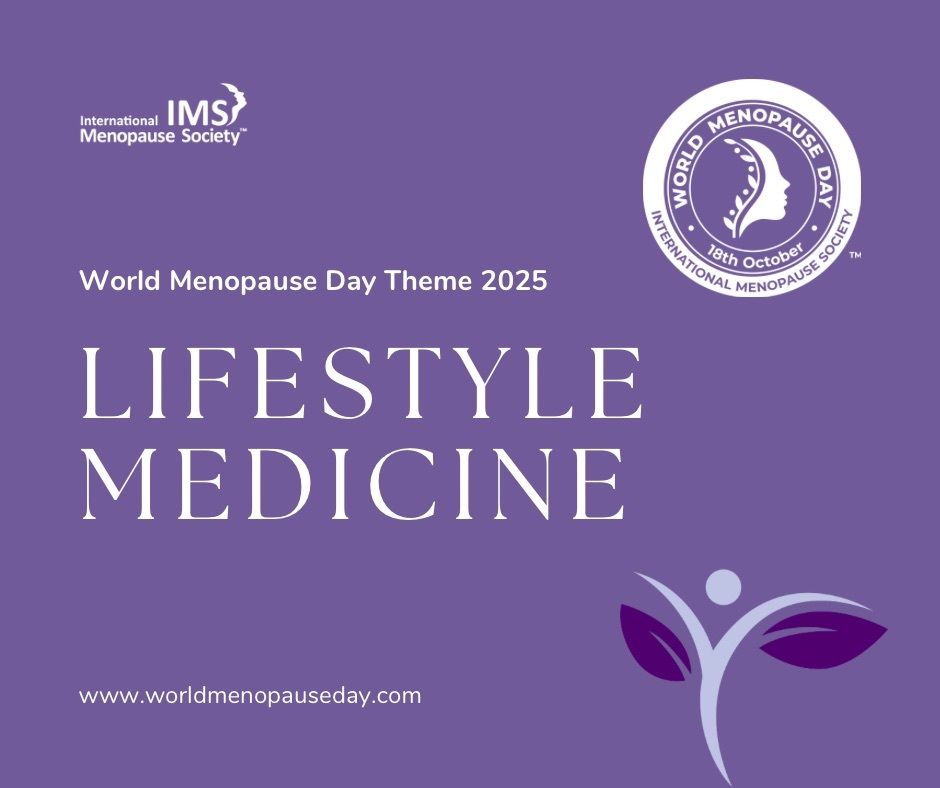
Sources
Where may I find the Sources quoted?
You may find the Sources quoted at:
Sources
- Williams, M.; Richard-Davis, G., Williams, P. L.; Christensen, L.; Ward, E.; Schrager, S. A Review of African American Women’s Experiences In Menopause: Importance and Objective. November 2022. https://journals.lww.com/menopausejournal/Abstract/2022/11000/A_review_of_African_American_women_s_experiences.16.aspx Accessed: 08 January 2026
- Menopause: Overview. 16 October 2024. World Health Organization https://www.who.int/news-room/fact-sheets/detail/menopause Accessed: 08 January 2026
- Williams, M.; Richard-Davis, G., Williams, P. L.; Christensen, L.; Ward, E.; Schrager, S. A Review of African American Women’s Experiences In Menopause: Discussion and Conclusion. November 2022. https://journals.lww.com/menopausejournal/Abstract/2022/11000/A_review_of_African_American_women_s_experiences.16.aspx Accessed: 08 January 2026
- Williams, M.; Richard-Davis, G., Williams, P. L.; Christensen, L.; Ward, E.; Schrager, S. A Review of African American Women’s Experiences In Menopause: Importance and Objective. November 2022. https://journals.lww.com/menopausejournal/Abstract/2022/11000/A_review_of_African_American_women_s_experiences.16.aspx Accessed: 08 January 2026
- Velez, A. Menopause Is Different for Women of Color: What A landmark Study Reveals. 14 September 2025. https://www.endocrineweb.com/menopause-different-women-color Accessed: 08 January 2026
- A Roadmap for Change: Black Women’s National Health Policy Agenda 2025–2026 – Research At BWHI: Black Women’s Perimenopause and Menopause Survey. 2025:7. Black Women’s Health Initiative https://join.bwhi.org/hubfs/pdfs/BWHI_NHPA_2025-26_v5.pdf Accessed: 08 January 2026
- Harlow, S.D., Burnett-Bowie, SA.M., Greendale, G.A. et al. Disparities In Reproductive Aging and Midlife Health Between Black and White women: The Study of Women’s Health Across the Nation (SWAN). Women’s Midlife Health 8, 3 (2022) https://womensmidlifehealthjournal.biomedcentral.com/articles/10.1186/s40695-022-00073-y Accessed: 08 January 2026
- Velez, A. Menopause Is Different for Women of Color: What Does This Mean for Women of Color? 14 September 2025. https://www.endocrineweb.com/menopause-different-women-color Accessed: 08 January 2026
- What Is Perimenopause and Menopause? When To See Your Doctor. Last Updated: 28 August 2025 | Last Reviewed: 22 April 2025. Jean Hailes for Women’s Health https://www.jeanhailes.org.au/health-a-z/menopause/about-menopause Accessed: 08 January 2026
- Menopause: Diagnosis & Treatment – Treatment. 07 August 2024. Mayo Clinic https://www.mayoclinic.org/diseases-conditions/menopause/diagnosis-treatment/drc-20353401 Accessed: 08 January 2026







